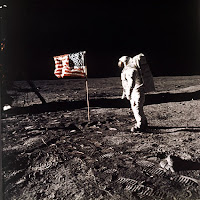Posted By Josh Rogin
Secretary of State Hillary Clinton, as a sitting administration official, does not have any role at the Democratic National Convention next week in Charlotte. But she seems to gone out of her way to avoid the festivities, as she is traveling this week and next to the Cook Islands, Indonesia, China, Timor-Leste, Brunei, and Russia.
"The Cook Islands this year are the hosts of one of the most important institutions of the Pacific called the Pacific Island Forum," a senior State Department official said Thursday. "It's a group that meets yearly with a number of working groups. It's been in existence almost half a century; it's very significant."
It's not Charlotte, but it is a big gathering. Last year, the administration sent 50 officials to the forum, representing 17 different federal agencies. Deputy Secretary of State Tom Nides led the delegation in 2011. The official said this trip was part of the administration's rebalancing toward Asia, with a special focus on the smaller countries around the region's periphery.
"Sometimes when we talk about the Asia Pacific, the A is the capital and P is small. And our attempt here is to underscore that we have very strong, enduring, strategic, moral, political, humanitarian interests across the region. It's an area in which we invested substantially historically -- blood and treasure," the official said.
"I just returned about two weeks ago from my own trip around the Pacific," the State Department official said. (Your humble Cable guy did did not attend the briefing, so we have no direct knowledge of the identity of the briefer, but the State Department publicly announced the foreign travel of Assistant Secretary of State for East Asian and Pacific Affairs Kurt Campbell earlier this month.)
Clinton will meet in the Cook Islands with Australian Prime Minister Julia Gillard and New Zealand Prime Minister John Key and will be joined by Pacific Command head Adm. Sam Locklear, the anonymous State Department official said.
In Indonesia, Clinton will meet President Susilo Bambang Yudhoyono and Foreign Minister Marty Natalegawa. Expect her to press Indonesia to work better with other ASEAN countries to come to a consensus position on how to confront China over the South China Sea. ASEAN failed to come to a consensus position at the ASEAN Regional Forum in July, despite Washington's urgings.
Next, Clinton is off to Beijing to meet with President Hu Jintao, Vice President Xi Jinping, and State Councilor Dai Bingguo. She will also have "intense meetings" with Foreign Minister Yang Jiachi, the official said. Topics on the agenda include the South China Sea, North Korea, Iran, Syria, and Afghanistan.
"I think the secretary intends very clearly to underscore our continuing interest in maintaining a strong, positive relationship between our two countries," the official said. "We recognize how critically important that is, and one of the challenges before us is to demonstrate how we deal with areas in which we have differing perceptions and where we face challenging issues on the ground, or in this case in the water."
After Beijing, Clinton will go to Timor-Leste and visit a coffee plantation. Next is Brunei, which will host the East Asia Summit in 2013, probably after Clinton leaves office. Then, she will go to an island off the shore of Vladivostok for the APEC summit, where she'll lead a large U.S. delegation and will likely hold a series of high-level bilateral meetings.
Pressed to explain exactly how the administration plans to advance U.S. and allied interests related to the South China Sea dispute on the trip, the official offered few specifics.
"I would say that the United States has sought to articulate a very clear set of principles that animate our strategic approach to the Asia Pacific region, and particularly to the South China Sea. Those will continue," the official said.
"We have had very intense consultations with every key player in the Asia Pacific region. I think one of the messages that we seek to carry on this trip is that it is absolutely essential that cooler heads prevail in every capital, and that great care be taken on these issues, and that, in fact, all of these complex territorial matters have existed for decades. They have been managed generally effectively for decades, and during this period we've seen some of the most manifest Asian prosperity. We need that to continue. This is the cockpit of the global economy, and so care must be taken across the board."

























